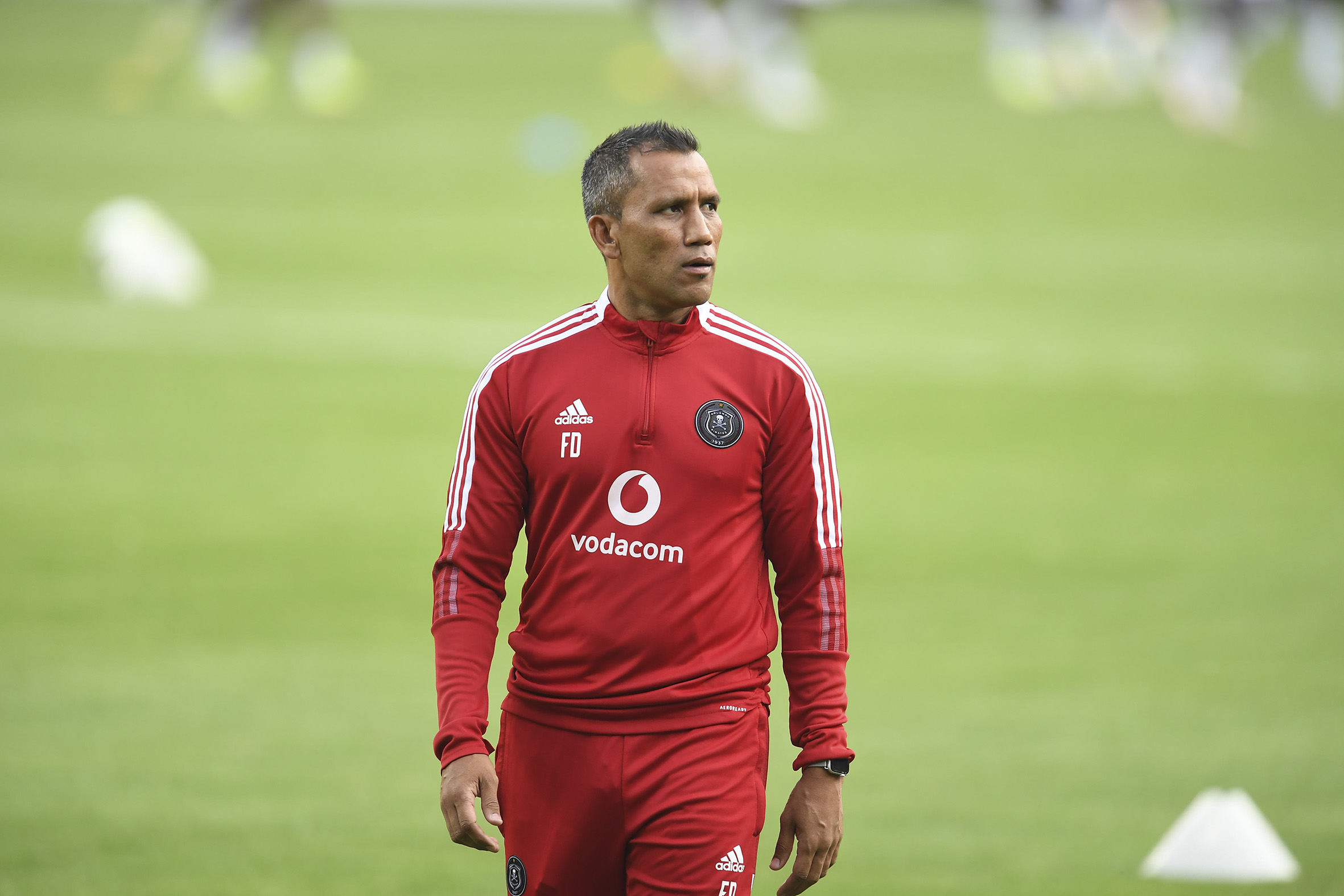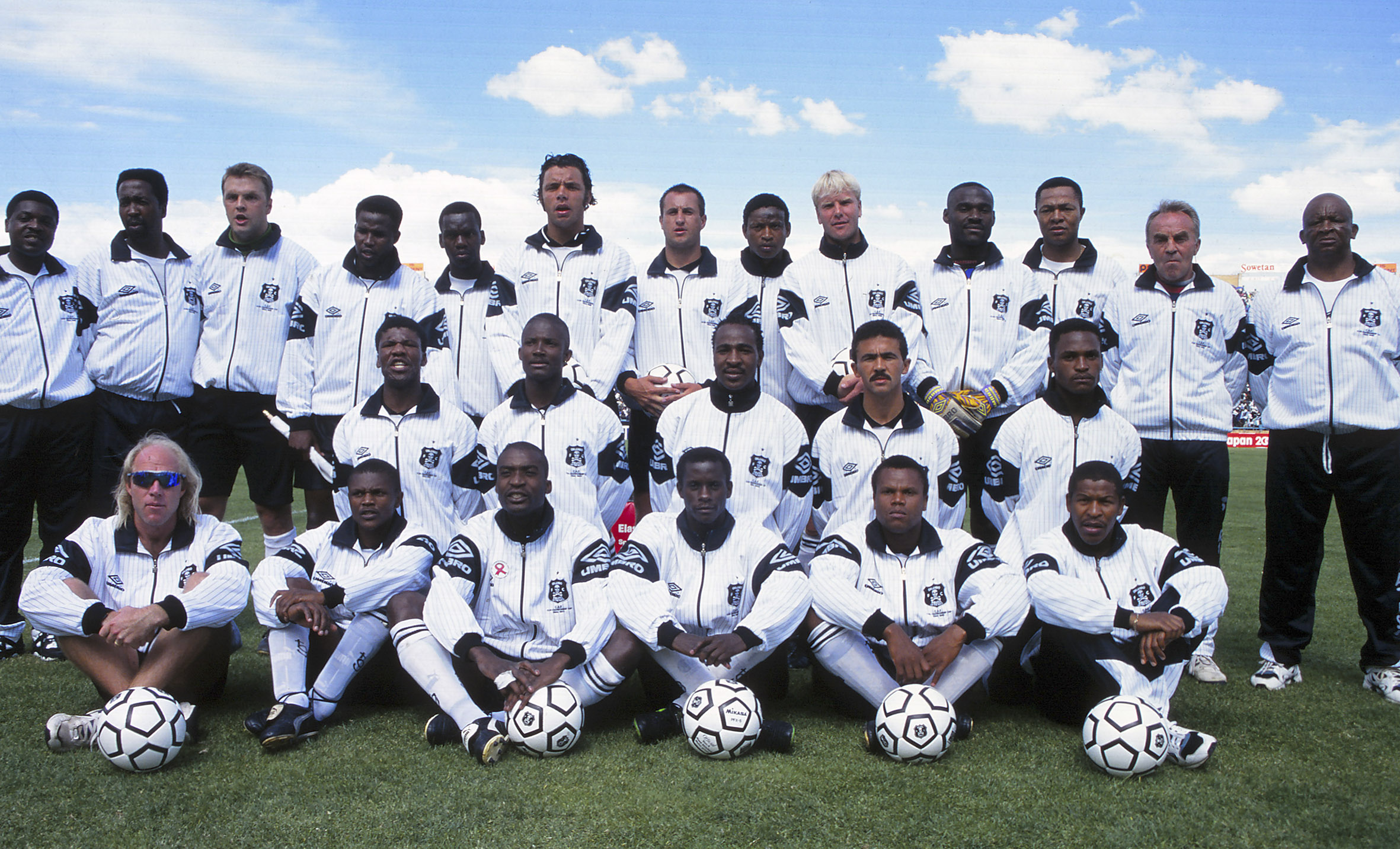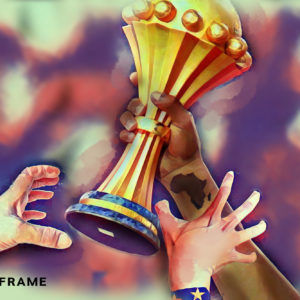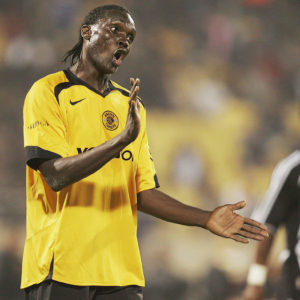Orlando Pirates seek Zen in Uyo
Coach Fadlu Davids wants his team to keep their emotions in check and impose their style on Berkane in the CAF Confederation Cup final in Nigeria.
Author:
20 May 2022

The Orlando Pirates who won the Africa Cup of Champions Clubs in 1995 did not really need a coach.
Why would they? They had hellraisers. Irascible characters such as Mark Fish and the late Marc Batchelor. With a ball at his feet, the spectacularly destructive Jerry Sikhosana. Ball thieves Phiri Tsotetsi and Brandon Silent, and the barnstorming wing Helman Mkhalele.
They were a side of hard men. Innocent Mncwango, Gavin Lane, Bernard “Shoes” Lushozi, Marks Maponyane, John Moeti and Fish never shied from a challenge. They had style merchants. Edward Motale was a princely leftback, Teboho Moloi a rival to Doctor Khumalo as a crowd-pleaser. Moeti, for his bite in the tackle, had the deftest caress of the ball and so did Dumisa Ngobe.
Such a team did not need a coach. They needed someone to pretend to scrawl on a chalkboard then get out of the way so they could get to the business of steamrollering opponents. Mike Makaab passed the chalk to Joe Frickleton from the quarterfinals. The mild-mannered and learned, late Zambian assistant coach Ronald Mkandawire “took charge” of the famous second leg in Ivory Coast where two ASEC Abidjan defenders collided to allow Sikhosana his path to goal for the epic winner, with Frickleton having been sacked after the first leg.
Related article:
Times have changed. African continental club finals are now played at neutral venues. Video assistant refereeing has curbed officiating howlers. The Pirates who meet Morocco’s Renaissance Sportive de Berkane in the CAF Confederation Cup final in Uyo, Nigeria, on Friday 20 May are workers who are not without skill. In the modern vein, they are disciplined in following the directives based on the technology-influenced analysis of their scientific coaches Fadlu Davids and Mandla Ncikazi.
The work ethic of teams, organisation standards in the DStv Premiership and pace of modern South African football are what trouble opponents on the continent now, as individual class, style and character has waned. That, plus a renewed vigour for success in Africa and the realisation of the rewards that can be gained forging experienced squads there, have reversed a long period of underachievement and yielded five finals in a decade.
One of these finals was won, by Mamelodi Sundowns in the 2016 CAF Champions League. As the Buccaneers hope to convert their third final in 10 years into a second continental trophy, Davids’ approach to the game at Uyo’s Godswill Akpabio International Stadium could run the risk of seeming dispassionate by the standards of 1995.
Road to the final
Pirates’ quickness in play, technical and organisational superiority, and analysis of the opposition brought them to the final. They topped group B over Libya’s Al-Ittihad, Algeria’s JS Saoura and eSwatini’s Royal Leopards. They saw off Tanzania’s Simba SC in the quarterfinals. Bucs’ best performance came in the 2-0 semifinal opening leg against Al Ahli Tripoli in Benghazi, Libya. They seemed to not quite know how to approach the home leg with such a lead, and lost 1-0 at Orlando Stadium.
In Berkane, Bucs meet a more pedigreed combination who are coached by one of the continent’s respected schemers, 60-year-old Florent Ibengé of the Democratic Republic of Congo. They are the first side Bucs have faced in 2021-2022 who have won a continental trophy – in this very competition – which they lifted in the 2019-2020 season after losing in the final in 2018-2019. They play in a league in which the organisation level is reputedly better than in South Africa. Having dismantled TP Mazembe 4-2 in arguably the tougher semifinal, they should be considered favourites in the final.
Davids was asked if that meant Pirates might need something more than organisation and tactics, perhaps in the vein of the hunger and fire in the belly of 1995, to beat Berkane. “One aspect is a team that wants it more. That’s a small aspect,” he said. “Tactically it’s very important how the game plays out, how we manage emotions in certain areas of the pitch.
“A clear example was the semifinal. We win 2-0 away against Al Ahli Tripoli, you go into the home match wanting to attack and play against a team that has nothing to lose. That’s where I talk about managing emotions. In the first 20 to 30 minutes we were not able to, and to play our normal football. In the second half it was much better, we were able to go into our structure and possession-based play.

“I think tactics are going to be very important in this match because Berkane have played in two different shapes – a 4-3-3 and a 4-2-3-1 – but a similar profile in how they approach the match. Three upfront, quick wingers, a tall target man. So, tactically, how we handle their threats and impose our game is important,” said Davids.
“The neutral venue gives it a slightly different feel because Berkane have different profiles home and away. So you expect quite a balanced approach. They’re not very good travellers. It’s really about us and how we impose our style on them. It’s not about being defensive, not about us giving them the favourites tag and being cautious. We trust in how we’ve approached this competition and in our players being able to execute on the day.
“Managing emotions is one part, but following the tactical plan, being in control of those moments when we are on top and not on top and trusting our game strategy to get the necessary goals are the most important. Our focus this year is being able to score enough goals. Notwithstanding knowing their threats and how we’re going to press and defend, and in which shape, we are really focusing on our attacking movements and how we are able to exploit the weakness we’ve identified in their team.”
Red cards
Davids’ motivation for playing down emotions stems not only from an emphasis on tactics. He pointed out the number of red cards Berkane’s opponents have received in the tournament, notably two in each group-stage game for Egypt’s Al Masry.
The coach said that Berkane’s experienced midfield three in particular – Larbi Naji, Bakr El Helali and Hamza Regragui – deliberately flare emotions at flashpoints to sway the officials and try to earn decisions and cards for opponents. Bucs have reasons to seek Zen in Uyo.
Pirates have underachieved domestically in 2021-2022 considering the squad they have. Nigerian Olisa Ndah, who will play the final at his old home ground where he won the league with Akwa United last season, is one of the finds of the Premiership this campaign. Bandile Shandu made the rightback position his own after his move from Maritzburg United in the off season, though he has been employed at wing recently. If much of Bucs’ forward impetus comes from Shandu, then Deon Hotto is the Mr Consistency for pace, penetration and relentless running in attack, particularly while Thembinkosi Lorch continues to be plagued by injury.
Bucs had a three-year absence from continental competitions after the 2015 Confederation Cup final. When they returned, the lack of experience in their squad showed as Pirates exited in the Champions League group stage in 2018-2019 and opening round in 2019-2020. As their experience has grown again, performance has improved.
Related article:
Pirates reached the Confederation Cup quarterfinals last season but were humbled 5-1 on aggregate there by eventual winners Raja Casablanca. “We learned a lot from that. We have experience. That’s why we’re in the final now,” said Hotto.
Sundowns have been the flag bearers of South African football in the Champions League knockout phases since their 2016 triumph. For Pirates, continental football harbours a special place in the club’s folklore and ambitions. They were the first South African club to win a continental trophy. That 1995 victory, after the country’s awkward baby steps into international football after readmission, helped diminish an inferiority complex and paved the way for Bafana Bafana’s 1996 Africa Cup of Nations win on home soil.
By reaching the 2013 Champions League final, the first for a South African club since Sundowns in 2001, Pirates reignited the country’s taste for success in continental club football. Club chair Irvin Khoza covets the prestige that continental honours bring.
Pirates’ players are well aware of such ambitions, and the “impact of that is big”, says Hotto. “But for us as players we just need to go there and win it for him [Khoza], for the club, for our families, for the supporters. We want to be remembered, we want to be in the history books too.”


